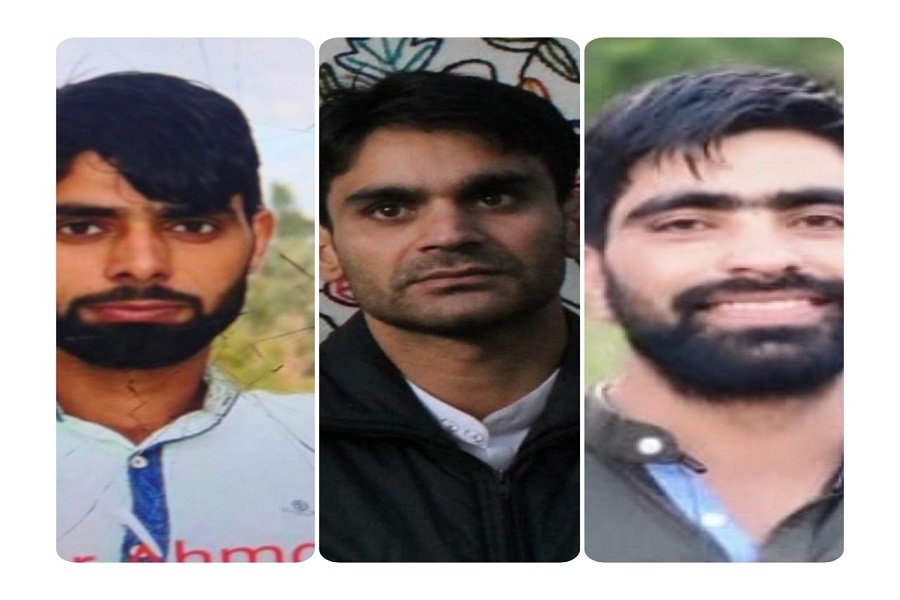
They make specific references to the plight of Waheed ur Rehman Parra, Irfan Ahmad Dar and Naseer Ahmad Wani
Team Clarion
NEW DELHI — The United Nations Human Rights Commissioner has published a letter it sent to the Indian government seeking explanation into the alleged cases of torture in detention, forced disappearance and custodial killing that took place in Kashmir last year.
The letter dated March 31 by the UN Special Rapporteurs allege that a youth leader of Peoples Democratic Party in Jammu and Kashmir, Waheed ur Rehman Parra, who is in jail since September 2020 in connection with militancy-related case was subjected to abusive interrogation including being held in a dark underground cell at sub-zero temperature, deprived of sleep, kicked, slapped, beaten up with rods, stripped naked and hung upside down.
The experts, while expressing concern, said that the torture and questioning of Parra was an act of reprisal against him for taking part in a virtual meet with UN officials on Kashmir situation post-August 5, 2019 decision of Indian government’s revocation of the special status of the former state.
The letter has been written to bring attention of Indian government towards the information the experts have received concerning Parra and two others, Irfan Ahmad Dar and Naseer Ahmad Wani.
Dar, a 23-year-old shopkeeper from Sopore town in Kashmir, died in police custody in September last year after he was nabbed without warrant from his home by forces who came in civvies.
According to the letter, the forces beat up Dar’s family members and vandalized the house during the raid.
The police claimed that Dar was killed while he was trying to escape from their custody. However, the letter said, while performing their last rites on his body, it was found that his facial bones had been fractured, his front teeth were broken and his head appeared to have bruises of blunt force trauma. His family was allowed to see his body for about 10 minutes before burial.
The probe ordered after the death led to the suspension of two policemen for “negligence of duty” for allowing him to escape, however, the letter says, “nobody was held accountable for his killing.”
The case of Nasir Ahmad Wani, a 19-year-old youth from Shopian district, comes under enforced disappearance. In November 2019, the army raided his house and conducted a search. The letter says that Wani was beaten while other family members were kept locked in an adjacent room. The army alleged that he had let militants use his phone. The soldiers then took him out with them.
When the family went to the army camp to seek his release, the experts say, they were not allowed in and forced to return home.
Later, an army major visited the family and told them that there was no need to go to police or start any legal procedures as they had released Wani. However, he did not return home and his whereabouts remained unknown.
The frustrated family approached the District Commissioner of Shopian who directed them to the police. In the meantime, according to the letter, the same major again visited Wani’s home and “assembled all the family members in a single room and pointed his gun at a family member’s neck and threatened them not to make any further enquiries or take legal action.”
The letter, while maintaining that the experts would not prejudge the accuracy of these allegations, expresses “grave concern” on the cases as it says that if confirmed they would constitute arbitrary arrest and detention, torture and ill-treatment, enforced disappearance and extrajudicial killing.
The Ministry of External Affairs (MEA) did not respond to The Hindu‘s request for a comment, or for confirmation that it has received the letter from the UN experts. The letter has been uploaded on the official website of the Office of the High Commissioner of Human Rights based in Geneva. (https://spcommreports.ohchr.org/TMResultsBase/DownLoadPublicCommunicationFile?gId=26181)
The newspaper adds that Jammu Kashmir Police or the National Investigation Agency (NIA), whose officials are accused of human rights abuses, too, did not give any comment.

